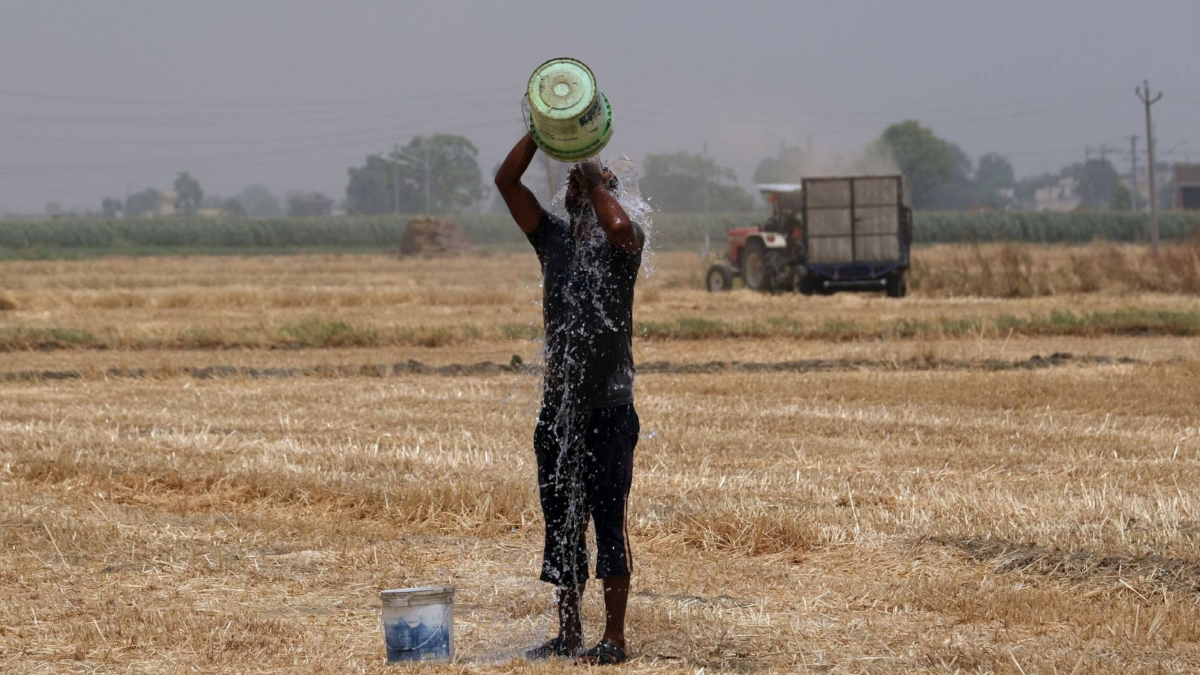At least 33 people, including election officials on duty, died from suspected heatstroke in the Indian states of Bihar, Uttar Pradesh, and Odisha on Friday. The heatwave in the region is predicted to persist until Saturday, according to authorities.
India is enduring an exceptionally hot summer, with a section of the capital, Delhi, recording the country’s highest ever temperature at 52.9 degrees Celsius (127.22°F) earlier this week. However, the weather department is verifying the sensors of the weather station that registered this reading.
The India Meteorological Department (IMD) reported that while temperatures in northwestern and central India are expected to decrease in the coming days, the heatwave in eastern India is likely to continue for two more days. The IMD defines a heatwave when temperatures are 4.5 C to 6.4 C above normal.
Officials in Bihar reported that 14 people, including 10 election workers, died on Thursday. Many election officials are required to work outdoors all day. Parts of Bihar are set to vote in the final round of polling on Saturday.
In Uttar Pradesh, India’s most populous state, at least nine election personnel, including security staff, died on Friday. “They had high-grade fever when they were brought in. It could be because of heatstroke as well. We are currently treating at least 23 people brought in from election duty,” R B Kamal, principal of the medical college where the personnel are being treated, told reporters.
Odisha’s Rourkela region reported ten deaths at a government hospital on Thursday. In response, the Odisha government has advised against outdoor activities between 11 a.m. and 3 p.m., when temperatures are at their peak.
Local media also reported three heatstroke-related deaths in Jharkhand state, neighboring Bihar.
In Delhi, high temperatures have led to incidents of birds and wild monkeys fainting. The city zoo is using pools and sprinklers to provide relief to its 1,200 animals. “We have shifted to a summer management diet, which includes a more liquid diet as well as all the seasonal fruits and vegetables which contain more water,” Sanjeet Kumar, director of the zoo, told news agency ANI.
Delhi, where temperatures reached 45.4 C on Friday afternoon, recorded its first heat-related death this week and is experiencing a severe water shortage.
The blistering heat is affecting billions across Asia, a trend scientists attribute to human-driven climate change. Neighboring Pakistan has also experienced record temperatures, reaching up to 52.2 C last week, resulting in a surge in forest fires.
India, the world’s third-largest greenhouse gas emitter, aims to become a net-zero emitter by 2070. While some regions battle heat, northeastern states like Manipur and Assam have been inundated by heavy rains following Cyclone Remal. The southern state of Kerala experienced monsoon rains on Thursday, two days earlier than expected.
The world’s largest election and its demanding campaign have been marred by these extreme conditions. The final phase of voting is scheduled for Saturday, with votes to be counted on Tuesday.






